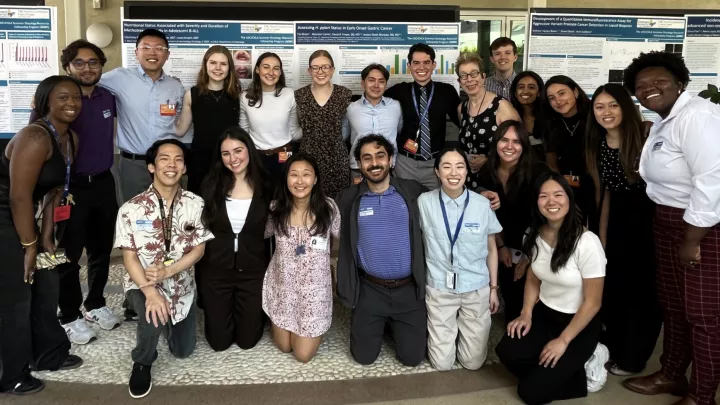
Anat Erdreich-Epstein, MD, PhD
I am a physician-scientist specializing in pediatric brain cancers in my clinical work, and in researching the biology of brain cancers in my laboratory. My laboratory discovered that PID1, a little-known gene, inhibits growth of a number of brain cancers, placing it as a candidate tumor inhibitor in cancer (Erdreich-Epstein et al, Clinical Cancer Research, 2014). We are now dissecting the molecular mechanism(s) by which PID1 functions. Our ultimate goal is to utilize the new knowledge in improved treatment of brain tumors.
Children’s brain tumors
I am a physician and a scientist. My clinical work centers on the treatment and care of children with cancer, and especially, those with brain cancer. My laboratory work also centers on brain cancers and strives to uncover the biology of these cancers. Through our discoveries we will increase understanding of brain tumors and thus, contribute to development of novel and improved treatments.
Education
Hebrew University-Hadassah Medical School, Jerusalem, Israel
Hebrew University-Hadassah Medical School, Jerusalem, Israel, (PhD)
Rotating Internship, Hebrew University-Hadassah Medical School, Jerusalem, Israel
Pediatric Internship, Montefiore Medical Center/Albert Einstein Medical College, Bronx, NY
Pediatrics, University of Southern California, Los Angeles County Medical Center, Los Angeles, California
Pediatric Hematology/Oncology, Children's Hospital Los Angeles, University of Southern California / Postdoctoral Research Fellowship, Children's Hospital Los Angeles, University of Southern California
Accomplishments
Pediatrics: American Board of Pediatrics
Pediatric Hematology-Oncology: American Board of Pediatrics
American Association for Cancer Research
The Society for Neuro-Oncology American Association for the Advancement of Science
Publications
*Erdreich-Epstein A, Robison N, Ren X, Zhou H, Xu, J, Davidson TB, Schur M, Gilles FH, Ji L, Malvar J, Shackleford GM, Margol A, Krieger MD, Judkins AR, Jones DTW, Pfister S, Kool M, Sposto R and Asgharazadeh S. PID1 (NYGGF4), a new growth-inhibitory gene in embryonal brain tumors and gliomas. Clin Cancer Res, 20(4):827-36, 2014. PMID: 24300787 *Corresponding author/senior author
Xu, J., Margol, A., Asgharzadeh, S. and Erdreich-Epstein, A. Pediatric Brain Tumor Cell Lines. J Cell Biochem, 116(2):218-224, 2015, PMID:25211508
Xu, J, Margol, A, Shukla, A, Ren, X, Finlay, JL, Krieger, MD, Gilles, FH, Couch, Aziz, M, FJ, Fung, ET, Asgharzadeh, S, Barrett, M, and Erdreich-Epstein, A. Disseminated medulloblastoma in a child with germline 6174delT BRCA2 mutation and without Fanconi Anemia. Frontiers in Oncology, , 5:191, 2015. PMID: 26380221
Margol, AS, Robison, NJ, Gnanachandran, J, Hung, LT, Kennedy, RJ, Vali, M, Dhall, G, Finlay, JL, Erdreich-Epstein, A, Krieger, MD, Dorris, KM, Fouladi, M, Gilles, FH, Judkins, AR, Richard Sposto, R and Asgharzadeh, S. Significance of tumor associated macrophages in medulloblastomas. Clin Cancer Res. 2015, 15;21(6):1457-65. PMID: 25344580
Lee JS, Xiao J, Patel P, Schade J, Wang J, Deneen B, Erdreich-Epstein A and Song H. Nuclear Factor I A (NFIA) negatively regulates p53, p21 and PAI1 to promote the malignant behavior of glioblastomas. Neuro-Oncol, 2014. 16(2):191-203, PMID: 24305710
Research
Anat Erdreich-Epstein, MD, PhD, is a physician-scientist and pediatric oncologist with a major laboratory research commitment. She seeks to understand the biology of brain tumors in order to create new and better treatments against them. Dr. Epstein's laboratory work is supported by generous donations and by grant support from the National Institutes of Health.
Visit the Erdreich-Epstein Laboratory.


